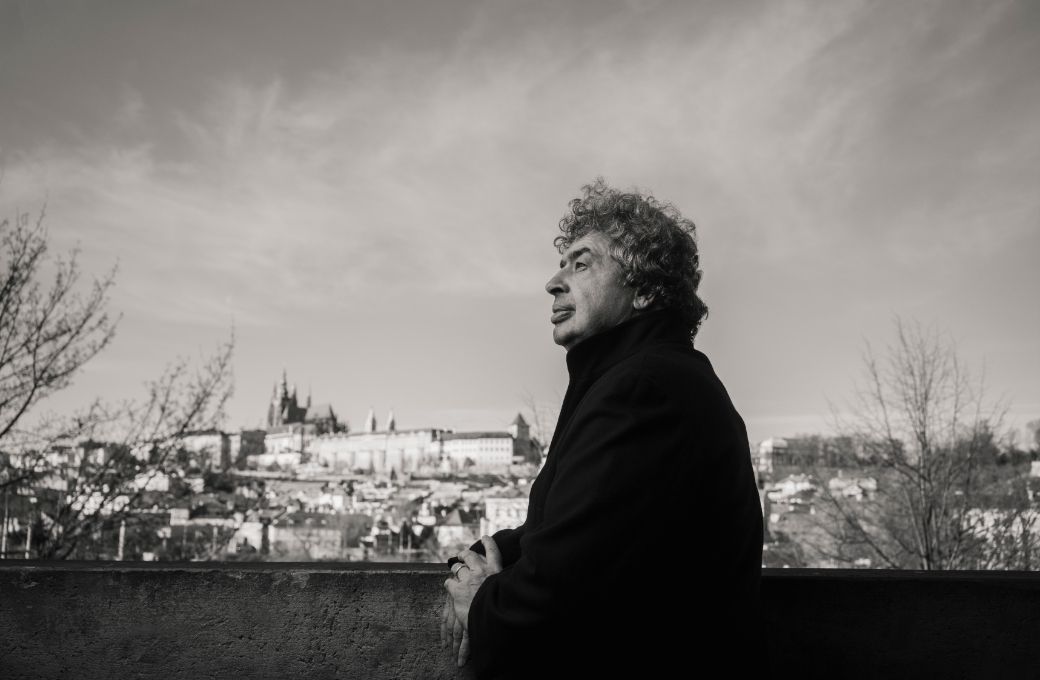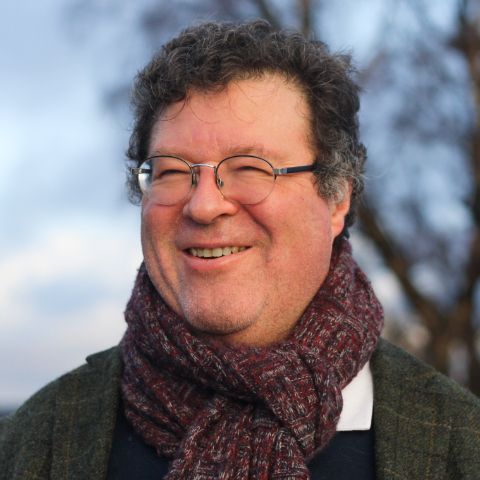The Maida Vale Studios aren’t the most prepossessing of venues – a maze of low ceilings and nylon carpets, haunted by the clatter of teacups plus a background hum of decades of orchestral gossip. But as the rehearsal home of the BBC Symphony Orchestra they witness great music-making on an almost daily basis. Memories are certainly being made today, as Semyon Bychkov rehearses Bruckner’s Eighth Symphony for tomorrow night’s Prom.

Our conversation though, is about the Czech Philharmonic, of which Bychkov became chief conductor in 2018. The first item on the agenda when Bychkov gets back to Prague to open the new season is Dvořák: three concerts, plus a tour and a series of recordings, that match Dvořák’s final three symphonies with his three concertos (for violin, cello and piano) and one each of the overture-triptych Nature, Life and Love. It’s a mouthwatering prospect, though the three symphonies are hardly terra incognita. In fact, for many conductors the late “trilogy” is the sum total of the symphonic Dvořák.
“Audiences adore number Eight, and of course, number Nine is one of the holy pieces anyway” agrees Bychkov. But for him, they’re certainly not the whole story. “Many years ago, I fell in love with the Fourth Symphony”, he recalls. “I loved it. And it's very interesting, because the slow movement is very Wagnerian in its language. Then he went away from that, and became very close to Brahms. He overcame the influence of Wagner, and he has somehow assimilated – maybe it’s better to say integrated – the influence of Brahms. And it’s really from the Seventh Symphony that he really comes into its own”. He warms to his theme.
“What I noticed is that in the 1890s, without losing the Brahmsian texture and atmosphere in his music, Wagner creeps back in. Rusalka is modelled on Lohengrin, and even parts of the Ring”. Bychkov conducted Dvořák’s opera Rusalka at the Royal Opera last season – a performance of huge vistas and shimmering sonic beauty. “It’s become an obsession”, he admits. “But of course, Dvořák also had himself, and one hears these amazing influences without him being derivative in any way”. A composer so sure of himself that he could engage with the strongest imaginable artistic personalities without losing his own voice? “Absolutely right. The same thing happened in the 20th century with Stravinsky and Schoenberg”.
That’s one thing that you notice early on about Bychkov. It’s never just about the music of the moment: there’s a perspective that spans centuries and cultures. Of course, Bychkov has a breadth of experience that few living conductors can equal. Trained under the great Ilya Musin (“he had an openness, a generosity of spirit”) in what was then Leningrad he’s held conducting posts in the USA, in Italy, in France (the Orchestre de Paris) and in Germany (Cologne and Dresden) and built close relationships with orchestras ranging from the Berlin Philharmonic to the BBC Symphony. And now, of course, the Czech Philharmonic. The chance to hear Dvořák’s musical voice articulated by native speakers has been particularly rewarding for him.
“I think the greatest challenge for us as interpreters today is to find authenticity of spirit in the music we interpret, and that's a cultural thing. There are two ways to do it. One is as a tourist and the other one is a native. By being with the people – by seeing the body language, by seeing the way people are – music comes from that. I conducted the Dvořák symphonies many times before I came to Prague. But it is only since I started conducting the Czech Philharmonic that new layers came to me. By now, it’s no longer ‘their’ Dvořák or ‘my’ Dvořák. It’s our Dvořák. It’s all about the inflection”. And what of that famous, indefinable Czech Philharmonic sonority?
“It's a certain soft-grained way of creating a sound. It is the dancing aspect – the Czechs love dancing and they love singing. Dvořák was not immune to that. But there is one other thing which the world may not be necessarily conscious of. It's their history as a country. Nationalism often is meant as a bad word, but in some cases it’s simply the need to preserve your own identity. When one is conscious of that, one hears that pride in the music”. What, even in a work as familiar (some might say overplayed) as the Ninth Symphony?
“The very first concert of the Czech Philharmonic Orchestra was conducted by Dvořák, and the “New World” Symphony was played. Every single musician in the orchestra is conscious of that. There’s a sense of belonging - not arrogance at all. You realise the responsibility of carrying the tradition without it becoming routine, like wearing an old sock. It‘s never ‘Oh, yeah, Dvořák: we know.’ In the rehearsals, they give themselves to it as much as they will in the concert. That is my orchestra”.
He holds his hand to his heart. Bychkov’s own pride in the Czech Philharmonic is unmistakable; though he’s admitted that he wasn’t looking for a new music directorship when they first approached him, shortly after the death in 2017 of his much-loved predecessor Jiří Bělohlávek. As a Russian-born artist working in Czechia, he could have brought problematic cultural baggage. In reality, Bychkov’s experience of persecution in the USSR (his Soviet citizenship was revoked when he left for the West in 1975), provided a point of connection. When Russia invaded Ukraine in 2022, the Czech Philharmonic invited Bychkov to join them in a public statement against Putin’s aggression. He’d already drafted his own: great musical minds think, and feel, alike.
“I think some of it, actually, it has to do with what is known as human chemistry. I was told early on that if I were just a Russian, or just an American, it probably would not really work. But because I’m a Russian who rejected the system and went away, they identify with that. They remember the Soviet tanks in 1968. In the end, I think it’s human compatibility. They’re in deep need, like everyone, of respect. But unlike many orchestras, they will not stand being dominated. What works with them is suggestion – the collaborative idea. When something is convincing – no matter whether it’s different from what they are used to – they will go for it. But they need to feel that you’re listening to them, as much as they are watching you”.
With a conductor as open-minded as Bychkov, and an orchestra as collaborative as the Czech Philharmonic, that mutual respect opens the paths to all sorts of new adventures. Those Dvořák concertos, for example: it’ll be Bychkov’s first time working with violinist Augustin Hadelich and cellist Pablo Ferrández, and he’s looking forward to it. “I’ve conducted the Cello Concerto all my life!” he laughs. But the Violin Concerto is less familiar, and the Piano Concerto is almost wholly neglected. “Part of that has to do with pianists”, he says. “It is pianistically incredibly hard, but it doesn’t sound it”. He’s glad to be working with Sir András Schiff, one of its few high-profile champions. “He definitely loves it – oh, he absolutely loves it. He’s played it for years”.
And for all his unequalled experience with the world’s greatest orchestras and opera companies, Bychkov admits to having had his eyes and ears opened by the Czech Philharmonic. He’s conducted them in music by Viktor Ullmann and Miloslav Kabeláč; and he hopes to perform more Martinů. “I adore his Double Piano Concerto, and the Concerto for two string orchestras, piano and percussion. That is Martinů at his greatest: it’s a dark Martinů”. And he’s on his own journey with Janáček – with the orchestra as a guide.
“We’ve done the Glagolitic Mass several times, and I have to say that I’m deeply grateful to them because his music has been very, very difficult for me. I did not grow up in the tradition: Janáček was very little played in Russia. I did the Mass in Paris and I found it excruciatingly hard. And now, we’ve done it a number of times and something has emerged from the orchestra that makes this music feel natural to me. This is what I mean, about approaching music as a tourist. It’s not a question of a definitive interpretation, because that doesn’t exist. But native Czechs have to feel that the spirit of their music is authentic.”
For a conductor and an orchestra to find that common language – that shared authenticity of spirit – requires humility and respect on both sides. It’s a simple, deeply human equation – but in troubled times, and after a difficult few years in which to be making music, it sounds like Bychkov and the Czech Philharmonic have got the formula just right. “The contact and the communication is incredibly direct, simple, and very warm” he says. “And it hasn’t changed. It’s my sixth season now, and if anything, it's simply deepened. Because we trust each other.”
The Czech Philharmonic’s new season begins on 27th September. See all upcoming performances from Semyon Bychkov and the Czech Philharmonic.
This article was sponsored by the Czech Philharmonic


